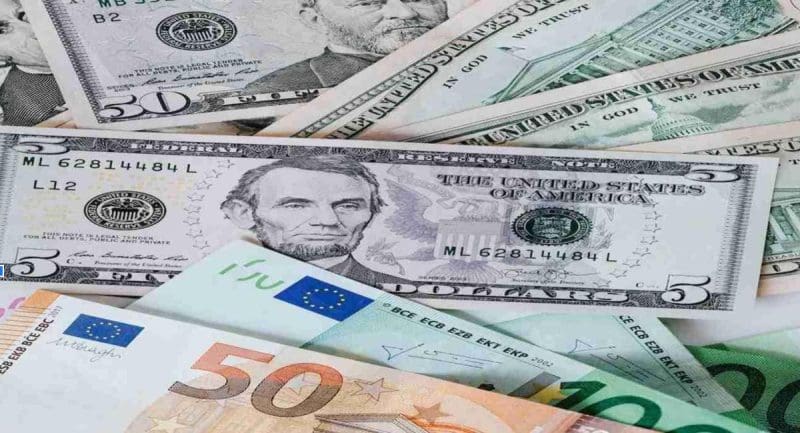
The forex market represents a large share of worldwide international trade and foreign exchange. Retail and institutional traders make judgments based on data gathered from various sources to follow happenings worldwide.
With more traders entering the forex market and more unpredictable occurrences, knowing the elements influencing market pricing is no longer advantageous but essential.
How Fundamental Data Impacts Forex Market Prices
One of the exciting aspects of the forex market is news trading, where traders enter or exit trading positions based on the impact of important news. For example, a forex trading investor may choose to buy the U.S. dollar when the U.S. Federal Reserve Bank announces a hike in the exchange rate.
Traders’ sentiment is determined by their perception of how events will drive exchange rates, confidence in the value of assets, and trading behaviors. This article helps traders and readers understand the top factors currently influencing the value of currencies in the foreign exchange market.
The Top Three Factors Affecting the Forex Market
At any point in time, there are dozens of events that sway investors’ sentiments, but these are the most important over the last decade.
Economic Indicators
Economic data help analysts determine the state and potential of current and future investments based on the state of the economy. Financial data is usually at macro levels and typically focuses on specific aspects of the economy. The top economic data that forex traders monitor include GDP, employment data, and inflation data. These three are easily the most important for determining the economic strength of any country and, therefore, the way investors feel about holding or selling off assets.
High inflation, for instance, weakens currencies, and traders often respond by buying traditional assets, such as gold, considered inflation-proof. A greater confidence in the economy’s strength brings more investors looking to make profits based on positive data.

On Thursday, the USD increased by 0.1% following the release of positive GDP data; the US economy grew faster than predicted in the fourth quarter. The Euro, in contrast, fell by 0.2% following reports of vagueness about rate cuts. Forex traders tracking economic data may have benefitted from both moves.
Nonfarm Payrolls, Consumer Confidence Index, Consumer Price Index, Retail Sales, and the Manufacturing PMI are other important economic indicators that forex traders keep an eye on.
Political Events
Global and local political events often influence trading behavior and drive economic events. Regions experiencing political instability may experience low investments, poor returns, and a generally weak economy. On the other hand, political stability promotes foreign and local investments, partnerships and innovations, and a more robust economy.
The major political events that impact the forex market are national elections, deaths of significant persons, diplomatic relations, major international events such as World Cups, the Olympics, pandemics, natural disasters, terrorist acts, and political instability (or turmoil). Hence, nations try to maintain local and international stability in addition to developing their economies.
The 2024 US elections will likely influence forex prices in 2025 as traders adjust to the economic policies of the elected President. The ongoing Russia-Ukraine war and Israeli-Gaza conflict, which is spilling into the Middle East, impact energy prices and consumer goods, which in turn impact the economies of various countries they do business with.
Real Interest Rates
Investors calculate the accurate interest rates (profits adjusted for inflation) following monetary policy announcements. Interest rates determine the exchange rate of currencies; higher rates attract foreign capital, but lower rates don’t. Central Banks try to balance reviving and maintaining economic growth and encouraging financial products based on borrowing; if the rates are too high, the intended economic effect may not happen, defeating the purpose of rate hikes.
Goldman Sachs and Bloomberg analysts expect the Bank of England (BoE) to cut interest rates by May 2024 to improve inflation, wages, and economic growth data. The BoE will join the U.S. Federal Reserve and the European Central Bank in crashing borrowing costs in 2024. Maintaining a healthy inflation rate is also important to keep economic growth viable.

Trading Sessions and Market Volatility
Forex trading sessions also affect the market prices through volatility — four major financial sessions: Tokyo, New York, London, and Sydney. Market volatility increases when these sessions open and usually leads to aggressive price movements. These are market-based factors that influence the forex prices. Volatility is, in turn, impacted by the importance of the trading session and the volume of financial transactions during the session. News of political events, natural disasters, and economic indicators are known to impact volatility during trading sessions.
Tracking Factors Affecting Forex Market Prices
The Fear and Greed Index, State Street Investor Confidence Index, and the CBOE Volatility Index (VIX) are valuable tools for tracking investors’ sentiments. Most forex trading brokers also provide news features and economic calendar tools where traders can follow important events before trading.
Breaking News and Sentiment Drive the Modern Forex Market
The real-time delivery of critical economic data and news of political events mark an essential era for forex traders in a market where news impacts the confidence and sentiments of investors. Understanding the various factors influencing forex market prices helps traders make better decisions.
